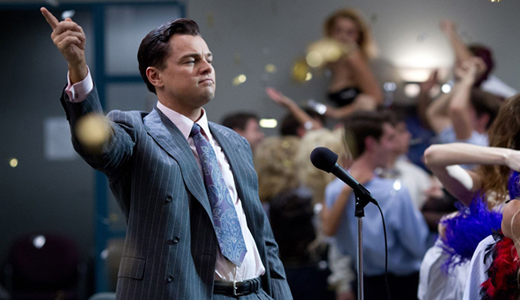I’m on assignment in Miami right now (I know, I know, tough work), and in the midst of flights and flight delays, I’ve been reading Bill Bryson’s The Mother Tongue: English and How It Got That Way. It’s all very interesting, and I’ve learned something new with practically each paragraph. (Did you know, for instance, that the word set in English has “58 uses as a noun, 126 as a verb, and 10 as a participial adjective”?)
But one of the interesting aspects of the book is how language historically reflects, and perhaps even impacts, the world in which we live. For instance:
According to Bryson, English speakers have the biggest vocabulary from which to pull from in the world. Webster’s New International Dictionary includes 450,000 words in the language. Germans must content themselves with about 184,000, and the French with just 100,000. And a lot of that variety is because we’ve been particularly adept in taking words from other cultures and making them our own. And given the histories of the two most important English-speaking countries—England and the United States—that’s not too surprising. After all, the former ruled, seems like, about half the globe. And the latter has always prided itself as being a “melting pot.” Little wonder our language would reflect that.
Another example: The English we know is a mishmash of lots of different things, but a core piece of how we got the language we have today came all the way back in 1066, when Normandy conquered England. Norman French mooshed with the Anglo-Saxon language of the day. Now, the names of some simple, standard trades of the time—baker and miller, for instance—have Anglo-Saxon roots, while more skilled workers—mason, painter, tailor—are all derivatives of French, reflecting the power structure of centuries past.
Also, English doesn’t have pesky, socially relevant suffixes that many languages have—meaning we don’t draw linguistic distinctions between the rich and powerful and the poor and not-powerful. “When [a Japanese speaker] says thank you he must choose between a range of meanings running from the perfunctory arigato (‘thanks’) to the decidedly more humble makotoni go shinetsu de gozaimasu, which means ‘what you have done or proposed to do is a truly and genuinely kind and generous deed,’” writes Bryson. Does that reflect or influence our sense of equality and democracy? But we also tend to shy away from descriptive words that suggest a middlin’ feeling to something (lukewarm might be an exception). Most of our descriptors swing boldly one way or another—from frigid to scalding. Interesting that we also tend to lean toward extremes in our passions and politics.
And we English speakers hate lulls in conversation more than any other: Studies show that, if there’s a pause of more than four seconds, almost all of us will be inclined to interject something about the time or the weather. Is that another indication of a decisive, sometimes hasty nature? A predilection to simply “do” something?
But if language does reflect and even influence a culture, what does bad language—that is, language of the graphic, unprintable variety—say about it?
Bryson is silent, thus far, on the matter. But still, I find it interesting. While I’m not a guy who’d say that movies are getting worse across the board, levels of profanity have unquestionably grown. On the “list of films that most frequently use the [f-word]” Wikipedia page (crazy that there is such a thing), 19 of the top 20 movies were made after 1994. (The exception, Goodfellas, was 1990). No. 1—Swearnet: The Movie—looks like it was specifically made to top the list, as was No. 2 (titled something we can’t even print here). But No. 3, of course, was The Wolf of Wall Street, which contained anywhere from 500 to 600 f-words, depending on the source. (We counted 525.)
And in light of Bryson’s book, I wonder: Is our culture growing increasingly vulgar? Are we pushing it that way? And why?






Recent Comments